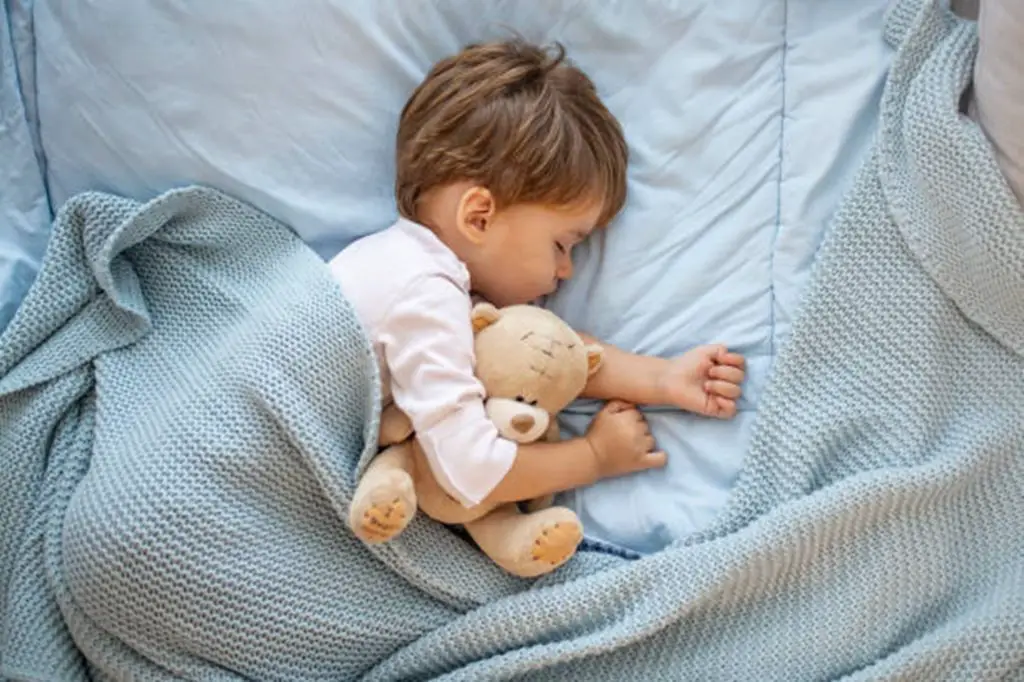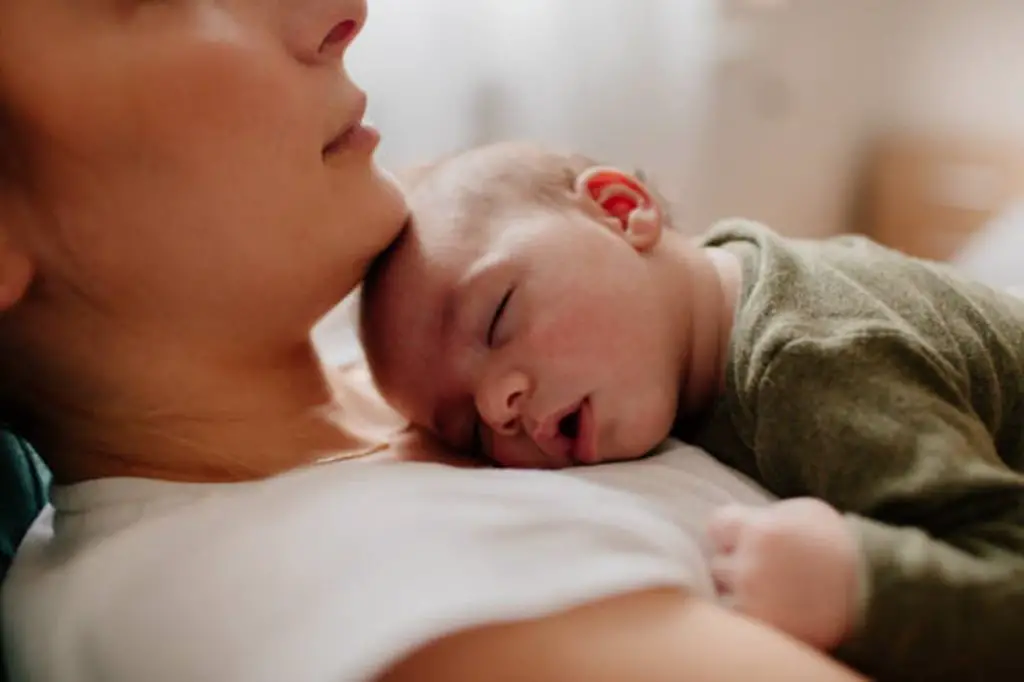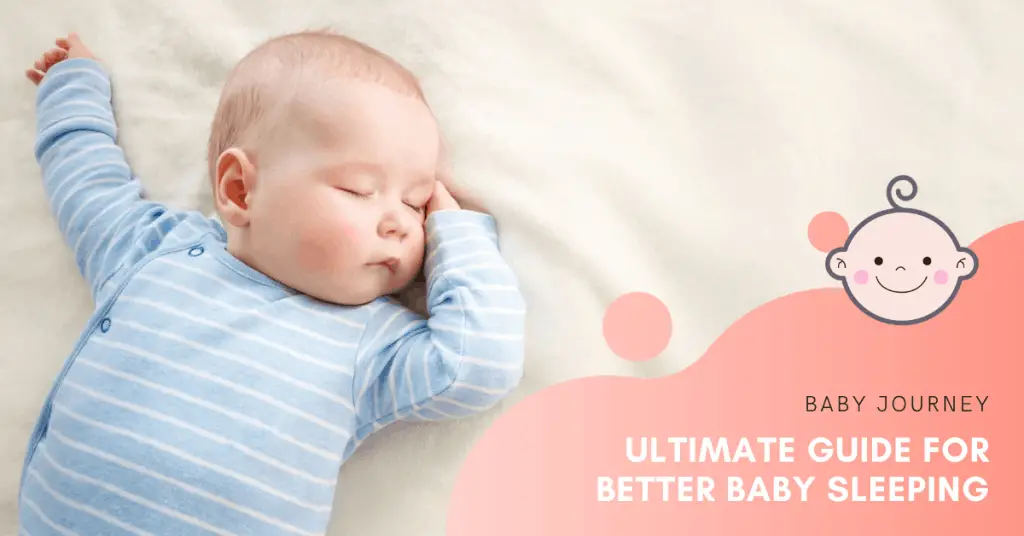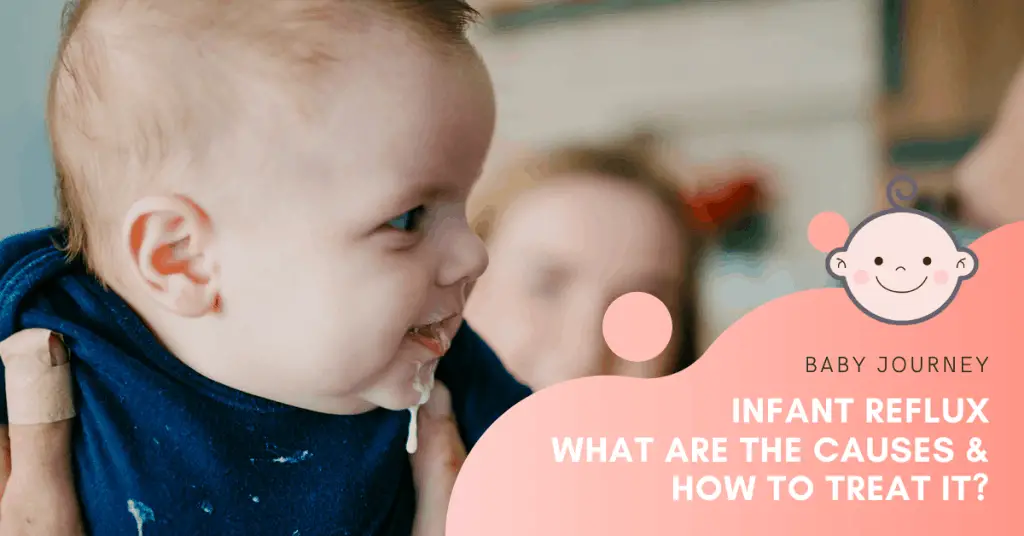The debate on whether or not babies should sleep in the dark has been going on for a while now and there seems to be no conclusion yet.
But one thing we know for sure – babies need more sleep than adults and we should give them all the help we can get!
After all, sleeping is one of the few several routine activities newborns can engage in – apart from pooping colors and providing their parents with endless happiness and sleepless hours!
Today, we will discuss the most important questions regarding baby sleep, and these may include:
- Does tv light affect baby sleep?
- Should babies sleep in the dark?
- Is the production of melatonin for newborns the same as that among adults?
- And more!
By the end of the article, we’re confident that you’ll know if you should use a nightlight for baby, and more about the ideal sleep environment in the nursery!
- Should Newborns Sleep in A Dark Room?
- Do Newborns Have Nightmares and Need Light To Calm Them?
- Should Babies Sleep With a Night Light: Additional Considerations for Older Babies
- How Dark Should My Baby's Room Be at Night?
- How to Make Sure the Room is Dark Enough for Sleep?
- Is Light or Dark Room When Travelling Important?
- How Long Should Your Baby Sleep in Your Room?
- Debunking Other Baby-Related Myths
- Summary
Should Newborns Sleep in A Dark Room?
Let’s cut to the chase, shall we?
Yes, darkness is ideal for sleeping for adults and babies. Interestingly, babies don’t come to the world with developed circadian rhythm (sleep cycles). Let’s see more about dark and light, how to sleep for newborns and older babies.

The Science Behind Sleeping
It is a known fact that babies need more sleep than adults. But the question is, should they sleep in the dark? Yes, I’m talking about absolute darkness.
The answer to this question varies from person to person.
Some say that it is better for them to sleep in the dark because their eyes will adjust and they will be able to see better when they grow up.
Others say that it’s not necessary for them to sleep in the dark because their eyesight will adjust as they grow up and some even believe that it might affect their health adversely.
After three months, babies’ sleep cycle starts to normalize. [1] This could very possibly be why your newborn won’t sleep at night in the first several months.
Between four months and one year’s time, the baby’s sleep cycle should be slowly starting to adjust to the sleep cycle of adults. At about the same time, you can start sleep training.
This is your perfect moment as the baby is ready to learn to self-soothe and may sleep through the night without too much of a fuss.
You may be interested in: Fussing When Breastfeeding
This is also the reason that explains why babies eventually sleep during the night and is active in the day – adapting their sleep cycle to just like their papa and mama’s!
About Melatonin
The arguably most important consideration about should newborn babies sleep in the dark is non-other than melatonin production.
Melatonin is often called the ‘sleepy hormone’ because it regulates sleeping. People produce melatonin in the dark during the night, and this hormone aids humans’ internal 24-hour clock.
The production of melatonin for babies 6 months, be it younger or older isn’t too different. Like adults, babies have the ability to produce and regulate the hormone in response to the dark.
Now that we’ve established all that – so, what should baby sleep in?
The answer is complete darkness! As soon as the melatonin production stabilizes, your baby will get used to the standard sleep cycle and sleep during the night.
Not only will that kind of cycle be convenient for you, but it also aids normal brain development and helps memory and emotional regulation. [2]
What About Additional Lightning Source In The Nursery?
Now that you know your baby should sleep with the light off, what about faint – a glimmer of dim light?
Nope. TV light is also a big no-no.
In fact, babies should be away from screens for at least two hours before bedtime. [3]
Related: When Can Babies Watch Tv?
The worst kind of light you can use in the nursery is so-called blue light, which isn’t completely blue.
It is a kind of white light that is too bright, which can trick the mind into believing it’s daytime. As a result, your baby’s body will stop producing melatonin – their ‘sleepy hormone’!
Let your baby sleep in complete darkness!
Do Newborns Have Nightmares and Need Light To Calm Them?
Do infants have nightmares? Should I leave a light on for my baby to prevent nightmares?
No. Babies don’t have nightmares despite their night crying. If your baby cries during the night, it isn’t because of the nightmare.
Some potential reasons can be hunger, a wet diaper, or teething pain.
Experts have found that nightmares in babies typically only start after the second year, so leaving the light on is unreasonable.
It can do the exact opposite – disrupt melatonin production and delay natural sleep cycles.
Should Babies Sleep With a Night Light: Additional Considerations for Older Babies
Like young babies, toddlers should also sleep in the dark.
Unlike younger infants, your toddler might experience discomfort during sleep for various reasons, including nightmares. In that case, you can opt to leave a soft, golden light to help your kid sleep calmly – or to scare away the ‘monster’ under the bed!
How Dark Should My Baby’s Room Be at Night?
Complete darkness is preferable for a good night’s sleep.
Nightlights can wake babies up, make them restless, and disrupt calming moments. A baby might even have trouble falling asleep in the bright room, or develop long-term difficulties staying asleep.
We believe we’ve already answered the question: should babies sleep in pitch-black roommore than enough times up to this point.
That said, we cannot stress this enough, so the answer is yes! You should make the room as dark as possible and use soft lights when you need to check on the baby.
Another alternative is to consider investing in a night vision baby monitor. These modern lifesavers feature infrared light to help monitor the baby in the dark. The good news is that they are equally effective in a dark or light room.
Should a Baby Nap in Dark Room?
Next, on to napping. Many parents wonder the same: should newborns nap in the dark?
For short newborn naps, a pitch-black sleep environment is ideal.
It helps the baby fall asleep during the day the same way darkness does during the night. To help with the baby’s natural sleep cycle, you should only expose the baby to light when awake and darken the room again at bedtime or nap time.
How to Make Sure the Room is Dark Enough for Sleep?
Let’s briefly go through some ways for you to achieve the ideal lighting in your nursery.
Turn the Light Off
Start by dimming the lights before you start the baby’s bedtime routine.
This will help the baby to adjust to the conditions in the room. Change their diapers and bathe the baby in a room without bright lights. Without knowing it, the baby might already feel sleepy when you put it to sleep!
- Should You Cover Light Sources?
Ideally, there shouldn’t be any light source in the nursery, including the small pitching lights from home appliances.
Blinking red or green dots can also disrupt the baby’s sleep in the middle of the night. For these instances, you may use tape to cover them.
- Do Babies Need Blackout Curtains?
Blackout curtains are practical and a simple way to keep the room dark. They will effectively block out any light source from the outside, including bright daylight or bright commercial lights during the night.
Blackout curtains also help regulate the room’s temperature and work as mild isolation.
If you have blinds for the windows, you can also achieve optimal darkness for sleeping without blackout curtains.
- 100% Polyester
- Imported
- Portable blackout curtain window shade, plus travel bag; blocks sunlight and UV rays, reduces outside noise, acts as an energy-saving insulating barrier, and ensures privacy
Nightlights
If you insist to include light sources in the nursery, make it a golden dim light so you can see your steps and monitor the baby while sleeping. Never direct it towards the crib.

The G Keni night light can be a good choice for the nursery. It is dimmable and operates on touch. That way, you can only turn it on when you need a little light for a nighttime diaper change! The light is soft, warm, and easy on the eyes.
- [ Touch Activated Night Light ] A simple short touch on the top of this LED bedside night light for power ON/OFF, HOLD the top power button for brighter or dimmer. The touch sensor night light lamp, it’s great for relaxing background illumination. Suitable for bedrooms, living rooms, and hallways, as well as relaxed modern offices.
- [ Brightness Memory Setting ] You can adjust the brightness to suit your needs, and the touch bedside night light will remember the brightness setting, the next time you turn on this baby diaper change night lamp, brightness is the same, no need to re-adjust every time.
- [ Must-Have Versatile Night Light Lamp ] A night lamp suits all. For children, it's for kids to help them feel secure and sleep easily. For elders, it’s a nightstand safe bedside sleeping light by the bed. For breastfeeding new mothers, as a newborn baby nursery light, baby feeding light, diaper change light, crib light, bedside table light, caring baby night light, toddler night light. For anyone, a portable night light to move around in the dark without bright bedroom light to bother.
Is Light or Dark Room When Travelling Important?
When you travel, you should stick with the sleeping routine of your baby to prevent night sleep disruption. However, it can be difficult to achieve total darkness in most hotel rooms.
Therefore, with the help of some amazing baby inventions, such as a privacy baby sleeping pod, you can recreate a good child sleep environment.
SlumberPod Privacy Pod is compatible with most mini cribs and baby playards. It features breathable materials that can help your baby sleep calmly on a trip!
How Long Should Your Baby Sleep in Your Room?
Babies should never sleep with their parents in bed, but the American Academy of Pediatrics (AAP) highly recommends room sharing. [4]
This is because room sharing with a baby significantly reduces the risk of SIDS and gives the parents ability to react in time in dangerous situations.
The question is: when should a baby start sleeping outside its parent’s bedroom?
The AAP policy is a bit ambiguous on this matter. Arguments for room-sharing are based on extensive research and baby safety as the ultimate goal.
The AAP recommends that the baby share a room with the parents for at least the first six months of life, preferably one year.
Therefore, it’d be best to keep the baby in your bedroom for a year! You can use the time to set up a nursery. There are numerous great decoration ideas out there in our community, and we understand it can take some time to choose the best one for your little angel!
Debunking Other Baby-Related Myths
Let’s discuss some of the most common baby sleep myths! If you believe in some of them, don’t worry, we’ve all been there (at least in my case…)
Keep reading if you are up for some myth-busting!
#1 Babies are scared of the dark.
Are babies afraid of the dark? In short, no. Babies aren’t born with a fear of the dark, it can come later in childhood. In truth, infants don’t have any conscious sleep preferences towards light or dark.
As explained previously, darkness remains to be the better choice not because of fear, but because of melatonin production.

#2 Your baby sleeps best in a silent room.
One of the most widespread myths is that silence ensures good sleep for babies. Truth is, white noise soothes the baby and not silence!
White noise sounds are designed to mimic the atmosphere in the womb, which has calming effects on newborns. In most cases, babies who sleep with white noise sleep longer and better than the ones sleeping in a completely silent room. [5]
Also, let’s face it: teaching the baby to sleep in complete silence is impractical. After all, how silent can a household be during the day, especially if you have more kids or you live in a busy neighborhood?
#3 Some babies don’t like being swaddled.
Here is the thing, some babies might fuss when you first start swaddling them. You may think that the baby hates it, and stop. Try not to do that.
Once the initial rejection passes, the baby will relax and enjoy the coziness of the swaddle.
During the first several months, babies will enjoy everything that reminds them of the womb, including soft noises and the way swaddling makes them feel!
Further reading: How Many Swaddles Do You Need?
#4 You should never wake a sleeping baby.
If the baby has been sleeping for over four hours, or that is how much has passed since the last meal, you should wake the baby to feed it.
In most cases, the baby will cry and let you know when it is time for feeding, but sometimes, they need a little nudge from the parents to help them stay on the breastfeeding schedule!
Related: Formula That Taste Like Breast Milk
#5 Parents should teach babies to sleep in their own rooms.
Aforementioned, pediatrics agree that babies should sleep in the same room with their parents for at least six months.
There is no rush in separating the baby. You kid will grow up soon and start sleeping alone, so it’d be best to follow the official AAP recommendations.

Summary
The most ideal condition for a baby to sleep is in the same room with the parents in total darkness!
This means no blue light, no TV light, and if it’s absolutely necessary, use only the softest night lights possible! You may also use blackout curtains or blinds to block out light sources. This helps the baby to develop a normal sleep cycle as soon as possible!
I hope you found the article useful.
Don’t forget to follow our Pinterest account @babyjourney0183 for more ideas, tips, and inspirations!
Stay tuned for more practical parenting articles!
–

Last update on 2024-04-17 / Affiliate links / Images from Amazon Product Advertising API






